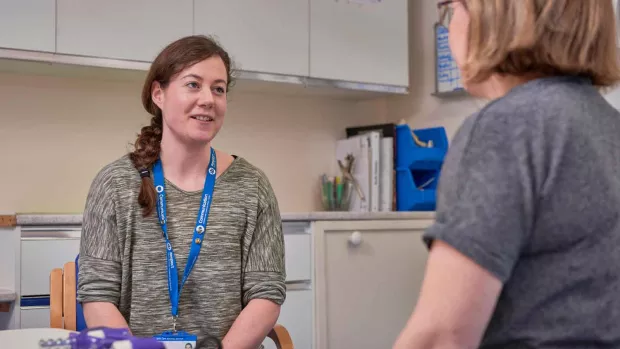
Using talking therapy to stay in work
Dr. Charlotte Wicks is a postdoctoral researcher at Leeds Teaching Hospital. She told us about her research, which looks at helping people with MS stay in work as long as they'd like. She’ll use a particular type of talking therapy in her project.
We know people with MS are disproportionately leaving work, often earlier than they would like. And two-thirds of people with MS in the UK experience problems at work.
We also know psychological factors play a key role in this. We think a type of talking therapy called Acceptance and Commitment Therapy (ACT) could help people with MS to stay in work for longer if they choose to.
How can ACT help people stay in work?
ACT can help people to stay in work because it can increase people’s self-belief in their ability to succeed. It encourages them to embrace their thoughts and feelings. And to seek solutions to difficult situations. ACT has also been shown to protect against things like burnout.
So, with the help of people with MS, we’ve co-developed an ACT-based programme to help people stay in work. It’s online so people can choose when they want to access it, but it’s supported by a healthcare professional who makes scheduled calls to check in.
We know ACT can improve a range of psychological factors which impact quality of life in MS.

A new online programme
Our pilot study showed the programme could reduce the risk of job loss for people with MS. Now, we’ll trial with more people to find out if we can make this work on a much larger scale, so it’s accessible for more people who need it.
We hope in the future it could offer a widely available option to help people with MS stay in work, without extra NHS resource. And we know ACT can also improve a range of psychological factors which impact quality of life in MS.
Read more about Charlotte's project
This article first appeared in MS Matters: Autumn/Winter issue 2023



